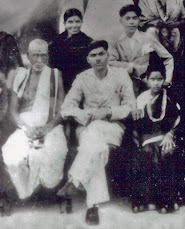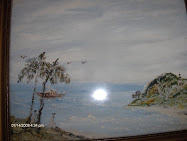Detailed methods have been given by the guides:
Learning
1. Emotional and Local Role of Reward and Punishment
2. Cognitive Conditioning
Processes
Memory and its Role Law of mass action (psychic cause)
Communication: Factors + and - Feedback
Sensory Inputs Motor skills
Role of Aspiration
Concept of Illness Isolation
of Defect
Employment
of +ve
The body as instrument or estate – Satipattana
Healing Processes
Concept of energy, information and field of action
Concept of protection
Exercise of compassion
Dealing with thoughts as communication
Sensitivity to vibrations
A Person is a field of force
\
The properties of the First Base that the agent may find useful in
transformation work and in what way the agent and native differ in their use of
these properties and the effect of such use, on the physical base.
1. Memory: Its
role in behaviour
Maintenance
of the past (Stereotypy)
Discrimination
Silanusmriti
2. (a) Concentration - -
ve Constrictive
+ ve Inclus
(b) Meditation – Workshop Japa – Technique and Objective – Mahabhawa
A
short note on the previous occupants of the territory
3. Aspiration - The territory
4. `I’ Function
5. Perception
6. Sensory Discrimination
7. Motor Skills
8. Emotions – Negative and Positive
9. Role of Rewards and Punishment in Learning
10. Learning – Cognitive,
Social or emotional
11. Concept of Feedbacks
12. Concept of Evolution
13. Concept of Universe as a
Communication System – Sound Speech and Its Limitations
14. Information
15. Coding
16. Energies and Personality
17. Discussion of Cues for
Action
18. Levels of Communication
and Action
19. Power and Potentiation
20. Protection
21. Concept of Territory
22. Time and Space – Here and
Now
23. Transmission
24. Change – Self Change
25. ENERGY– KNOWLEDGE – POWER
sat-chit-ananda.
26. Compassion
27. Oneness
28. The Summary
The Task
The Methods
The
All …………….
The
…………..
Memory
It is the material of yesterday (past) becomes
the basis for today and tomorrow.
The native uses memory function to perpetuate
his race and rule, the central feature being a separate personal empire – of
exploitation and mastery of the world – hence a perpetual fear of being overthrown
– a perpetual hunt for possible and imagined dangers to his dominance, a
perpetual incapacity to imagine anything wider, bigger or better than his
limited view of life which he imposes on the body.
The
physical memory is a faithful, unselected record of all that happens in a day.
Out of this constant storehouse, the native
selects the material that represents his miserable little concerns.
He remembers injuries, insults and misfortunes
and stores such memories. If anyone has
done good to him for a hundred days, but one day that person offends him, the
native forgets all the good and remembers the offence and nurtures it, talk
about it. His so-called art and
literature, drama and cinema are filled with this miserable story of his misfortunes
and the sense of martyrdom with which he meets them, forgetting that he himself
is the author of his memory. He insists
into his innocent body this highly selected pattern of the memory of his life
and attributes the things that follow to a cruel fate. He writes his drama and acts it – this day
after day, generation after generation he lives confirming his own predictions
after himself: what is man, born today,
got tomorrow, old age retirement, disease, then death, strife, treachery,
frustration, cruelty and what not.
The agent knows that today’s memory is the
manure for tomorrow’s life. So like a good
gardener, from the unselected mass of fallen leaves and stones and dirt and
flowers that occur during the day, he systematically chooses the good and
fragrant and nourishing portions. His
tomorrow’s garden is full of better and better roses. The native shoots thorns, anticipates thorns
and grows thorns.
The agent sifts his memories of the day and
actively remembers and stores the good, good things done and said, goodness and
sweetness wherever he finds it.
Under the native and his kind of memory
training, the body suffers hell – it is agitated, frightened, restless and
sleepless and always on defensive expecting dangers from every side.
Under the agents attitude to memory the body
becomes restful, trusting and optimistic.
The fly and bee are free to roam over the same area. One collects dirt, the other honey.
Since the memory is the basis for most action
and speech, the native’s talk tends to be about wrongs done to him and
criticism of others causing further friction, whereas the agents talk is of the
good that he sees or hears and silent goodwill when there is nothing positive
to say or do. The agent unlike the
native does not just remember things that only concern him, but can and does
take note of all good in the world of men, trees, birds and earth and
skies. Thus he can always find something
good. Good memory is the basis of good
health.
The agent is alert to this important function
and he will systematically and consciously trains his memory; understanding its
role in management of the body. Under
the native’s care, the body always anticipates illness and death. Under the agents’ care it has stronger and
stronger anticipation of a large and wider and endless joyous being and
growing. The body is like a good horse
anticipates and aspires to obey the master and as the agents’ race is gaining
greater and greater control, the body too responds by greater plasticity and
durability.
Remember that today’s memory is tomorrow’s
happenings. Cultivate your memory as
carefully as a gardener his garden. Do
not imitate the natives.










